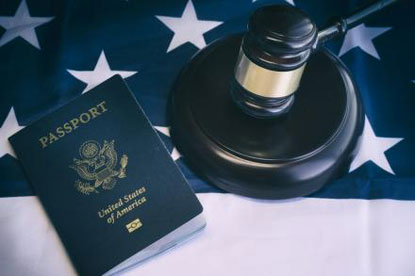Summary: The Supreme Court ruled that law enforcement generally needed a warrant to use cell phones to monitor suspects.
In a 5-4 ruling, the Supreme Court sided with citizens and said that law enforcement could not track them using their cell phones without a warrant.
According to Fox News, Chief Justice John Roberts was the swing vote in this decision, and he was joined by liberal Justices Ruth Bader Ginsburg, Stephen Breyer, Sonia Sotomayor and Elena Kagan. The case focused on the Fourth Amendment and whether or not police were required to have a warrant to access a suspect’s cellphone location history.
“It is the latest foray by the justices into how laws should be tailored to keep up with technological advances,” Fox News said. “The stakes were enormous, since this judicial precedent could be applied more broadly, including government access to Internet, bank, credit card and telephone records.”
Roberts said that after this case warrants will always be needed to access electronic and cell phone records.
“We decline to grant the state unrestricted access to a wireless carrier’s database of physical location information,” Chief Roberts wrote. “The fact that such information is gathered by a third party does not make it any less deserving of Fourth Amendment protection. The Government’s acquisition of the cell-site records here was a search under that Amendment.”
Privacy and civil rights advocates said that current law allows law enforcement to access over 300,000 communications towers to discover where people are using their smartphone data. The US Justice Department argued that cell phone users knowingly gave away their information and therefore had no right to privacy.
The Supreme Court case was brought on by Timothy Carpenter, who had been arrested for robbery in Michigan and Ohio. He and his colleague were convicted after police used cell phone records to locate him during the crimes, and no warrants were used to obtain his location information.
Carpenter had appealed to have his conviction thrown out and the evidence dismissed.
“The government’s position fails to contend with the seismic shifts in digital technology that made possible the tracking of not only Carpenter’s location but also everyone else’s, not for a short period but for years and years,” Roberts wrote.
Justice Anthony Kennedy wrote the dissent and said that the ruling could inhibit law enforcement. He was joined by Justices Clarence Thomas, Samuel Alito, and Neil Gorsuch.
“This case should be resolved by interpreting accepted property principles as the baseline for reasonable expectations of privacy,” Kennedy said. “Here the government did not search anything over which Carpenter could assert ownership or control. Instead, it issued a court-authorized subpoena to a third party to disclose information it alone owned and controlled. That should suffice to resolve this case.”
ACLU attorney Nathan Freed Wessler argued the case and called it “groundbreaking.”
“This is a groundbreaking victory for Americans’ privacy rights in the digital age,” Wessler said. “The Supreme Court has given privacy law an update that it has badly needed for many years, finally bringing it in line with the realities of modern life. The government can no longer claim that the mere act of using technology eliminates the Fourth Amendment’s protections.”















































